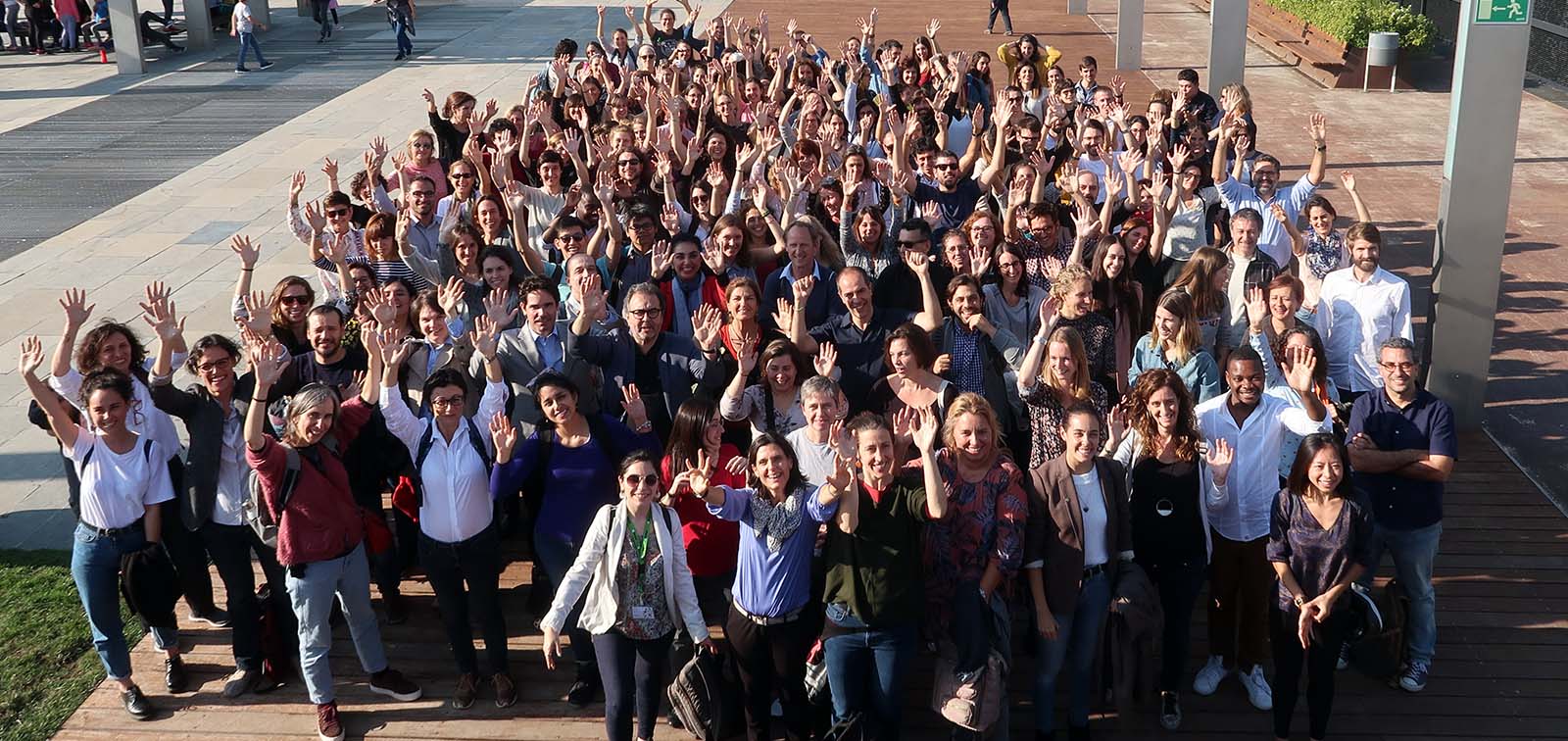ISGlobal Holds its 2019 Scientific Retreat
The meeting featured a lecture on the ambitious Human Vaccines Project
04.11.2019
The Barcelona Institute for Global Health (ISGlobal), a centre supported by ”la Caixa”, held its 2019 Scientific Retreat at CosmoCaixa, Barcelona, on October 30, where it reviewed last year’s results and next years’ projects and challenges. ISGlobal director Antoni Plasència stated that last year’s achievements are the result of a “thriving community in an enabling environment,” and he underlined that “strengthened ownership, trust and responsibility is what makes us stronger.”
The next frontier in science: decoding the human immune system
Wayne Koth, President and CEO of the Human Vaccines Project, was this year’s invited speaker. He gave an inspiring lecture on why decoding the human immune system is the next frontier in science, and could have the same impact as the Apollo space missions, the internet, or the human genome project. “Deciphering the rules of immunity will lead to new vaccines, diagnosis and treatments for global diseases,” he said.
The ambitious Human Vaccine Project will address the fundamental question of why some people respond better than others to vaccines or are better protected from disease, from Ebola or measles to Alzheimer’s or cancer. The project plans to create a new model – cross- sector, cross-disease and cross-sharing – and exploit new technological advances such as systems biology, artificial intelligence and machine learning for the analysis of big data. Its goals are to: i) perform the complete sequencing of the human immunome (i.e., the complete set of recombined immune receptor genes, which is 10 to 11-fold larger than the genome), ii) determine how the immune system fights disease, and iii) develop the first machine learning model of the human system.
In just over three years, the project, in which ISGlobal is a partner, has raised more than 20 million USD, shown that it is feasible, and that machine learning can be applied. The first results show that an individual’s baseline immunity is predictive of the outcome. “If successful, the human vaccines project will transform the whole future of human health,” said Koch.
A sample of last year’s main results
One of the institution’s main achievements in 2019 was its accreditation as a ‘Severo Ochoa Centre of Excellence’. Manolis Kogevinas, who led the proposal preparation, thanked the entire ISGlobal staff for the hard work and explained that the distinction will increase ISGlobal’s status, help set priorities, and bring money for hiring new personnel for three new cross-cutting areas (mobile health technologies; data science and big data; and health impact assessment and implementation science). He also reviewed some of the criticisms made by the committee, which need to be addressed to ensure renewal in four years’ time.
The retreat, organised by researchers Carlota Dobaño and Xavier Basagaña, continued with a brief review by principal investigators of results from major projects, including antibiotics in microalgae, lung function and exposure to chemicals, or health economics in the fight against vector-transmitted disease. PhD students and postdocs also presented some of their last year’s results in topics ranging from the health impact of the Barcelona superblocks to the sex life of Plasmodium falciparum.
A taste of what’s to come
The second part of the afternoon saw a brief presentation of upcoming research and some examples of its expected impact, not without a touch of humour. Recently-funded projects include Harmonic (on health effects of exposure to medical radiation in children), MAMAH (on malaria prevention in pregnancy), INTE-AFRICA (on integrating diabetes and hypertension care in Africa), and a series of projects on the exposome.
To fly or not to fly
The one-day meeting also included a discussion on the need – or not- to reduce work-related travel. A series of suggestions were made not only regarding air travel but also other daily life aspects that could help decrease the institution’s carbon footprint.
ISGlobal’s scientific director, Josep M. Antó, closed the day by declaring “2019 has been a great year, the harvesting year.” However, great challenges remain and there is an urgent need to combat climate emergency. “Health care also has its carbon footprint,” he warned. In this context, ISGlobal activities are increasingly oriented towards the field of Planetary Health.



